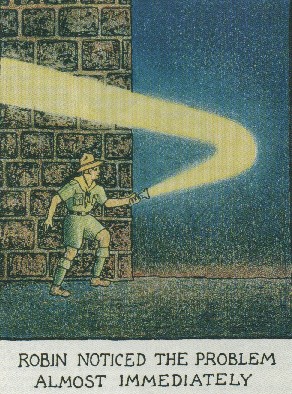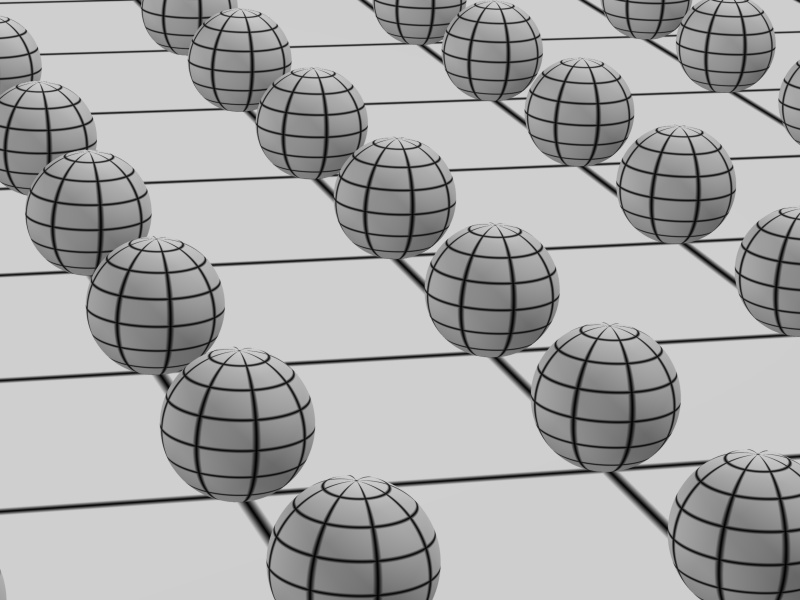.
Schedule of Our Topics
and Reading Assignments
Phil. 192D
Spring Semester 2019
Prof. Dowden

(Also you should read all the weekly supplementary material within
Canvas | Modules) Topics: Overview of the philosophical issues involving time,
space, and infinity. Viewing: Is the Universe Infinite?
(23 minutes) [Note:
When you are in Canvas Modules and you click on
a link, and up pops the message, "This
site needs to be opened in a new browser window," you should just go
ahead and click on the video title below that message, and then the
video will start.Week 1:
Introduction to the Issues.
Reading: Space, opening summary before the table of contents.
Reading: The Infinite, opening summary before the table of contents.
Reading: Chapter 1 in The Metaphysics of Time: A Dialogue (hereafter called The Dialogue).
Time, Mind, and Measurement Week 2:
Topics: Time's relationship to mind. Is time objective? What is time? The metric for time. Can our standard clock be more accurate? Arguments for time's not being real.
Optional Reading: Introducing Time, by C. Callender, pages 4-13.
Reading: Chapter 3 in The Dialogue.
Reading: How is Time Related to Mind? section 2 only.
Optional Reading: Pages 14-21 and 28-29 of Callender.
Reading: What is Time? The introduction to section 3, plus subsections 3a and 3b only.
Reading: The Measure of All Things, by L. Poidevin [Log into Canvas | Modules | Course Content].
Week 3:
Why is There Something Rather Than Nothing?Topics: The origin of space and time; the implications of the Big Bang Theory. The wide variety of ways to answer the cosmic question "Why is there something rather than nothing?"

Reading: "The End of the Universe," by L. Krauss.
Reading: "Does Time have a Beginning or End?" section 3 only.
Reading: "Proof of the Big Bang."
Reading: Pages 63-69 in chapter 5 of The Dialogue.
Reading: "The Intuive Greek Void vs. the Unintuitive Quantum Vacuum" by A. Lightman.
Reading: "Why Is There Something Rather than Nothing?" by E. Sober.
Reading: "Stop Asking Why There Is Anything" by S. Maitzen.
Week 4:
Absolute vs. Relational Space. Can Time Exist Without Change?
Topics: The relationist-absolutist debate between Leibniz and Newton; Kant's right hand and its incongruent counterpart; Mach's Principle; Einstein; Shoemaker's thought experiment.
Reading: Pp 69-79 of chapter 5 in The Dialogue.
Reading: Does Time Require Change? (Relational vs. Substantival Theories), section 6 of "Time" in the Internet Encyclopedia of Philosophy.
Viewing: "What is a field?
Reading: What is a field?

Woman teaching geometry
Week 5:
Einstein's Special
Theory of Relativity.
Topics: The fourth dimension, space contraction, time dilation, relativity of simultaneity, the twins paradox, conventionality of simultaneity.
Viewing: What is a Scientific Law? by Bas van Fraassen.
Reading: "Einstein's Proof of the Mixing of Space and Time," by K. Thorne.
Reading: "Relativity of Simultaneity."
Viewing: What is Space-Time? by K. Thorne.
Viewing: Pole in the Barn Paradox (5 minutes)
Optional Reading: Pages 38-41, 52-67 and 90-93 of Callender.
Reading: "The Twins Paradox."
Reading: "The Conventionality of Simultaneity."

Einstein with Gödel, the logician
Week 6:
Einstein's General Theory of Relativity and the Shape of Space.
Topics: Matter tells space how to curve, and space tells matter how to move; topology; black holes; the geometry of space changes in time.
Viewing: What is Space? by Brian Greene, Nova.
Optional Reading: Pages 94-97 of Callender.Reading: "Three Shapes of Space".
Reading: "Measure, Metric, and Curvature".
Reading: "The Twin Sisters: Philosophy and Geometry" by Wesley Salmon.
Reading: "In Space Do All Roads Lead to Home?" by J. Levin
Optional Reading: Pages 123-125 of Callender.
Reading: "Cosmic Shape and Geometry".

Week 7:
Time Travel.
Topics: Travel to the future. Travel to the past.
Reading: "A Botched Suicide".
Viewing: "The Paradoxes of Time Travel" by Sean Carroll.
Reading: "Rules for Time Travelers" by Sean Carroll.
Graphic: "Extrinsic Curvature of Time".
Reading: Chapter 4 in The Dialogue.
Optional Reading: Pages 68-89, 98-117 of Callender.
Optional Reading: "Itinerary of the Terminator".
Optional Reading: "The Paradoxes of Time Travel," by D. Lewis, American Philosophical Quarterly, 1976, pp. 145-152. (available in JSTOR database)
Optional Reading: Is Time Travel Possible?

a large time machine
Topics:
Infinity and Mind, Zeno's Paradoxes, Hilbertís Hotel; infinites of different sizes. Reading:
Infinity
and the MindWeek 8:
The Infinite: Part I.
Reading:
Zeno's Paradox.
Reading:
Hilbert's Hotel.
Reading: How to Count Infinities by G. Gamow.

Week 9:
The Infinite: Part II.Topics: The infinite in metaphysics, philosophy and physical science.
Reading: Infinity
in Metaphysics". Read section 3.
Reading: Infinity
in Physical Science. Read section 4.
Weeks 10 & 11:
McTaggart, Time's Flow, and Presentism.
Topics: McTaggart's A-theory and B-theory; the flow of time; presentism and the growing block theories; whether the block universe implies determinism or fatalism or both; tensed time vs. tenseless time; enduring vs. perduring.
Reading: "The Unreality of Time," section 3c of "J.M.E. McTaggart" in the Internet Encyclopedia of Philosophy.
Reading: Chapters 6 and 7 in The Dialogue.
Optional Reading: Pp. 32-37, 42-51, 66-67, and 109-113 of Callender.
Reading: "Three Metaphysics of Time."
Reading: "Some Free Thinking about Time," by A. N. Prior.
Viewing: "Time is an Illusion," by Brian Greene (10 minutes)
Optional Reading: "How Time Flies," by G. Schlesinger, Mind, 1982, pp. 501-523. (available in JSTOR database)
Optional Viewing: "Past Present and Future Exist Now," Brian Greene (25 minutes).
Optional Reading: "Presentism and Properties" by J. Bigelow, Nous Supplement: Philosophical Perspectives, 1996, pp. 35-52. (available in JSTOR database)
Optional Reading: "Subjectivity of the Present," by C. Callender.
Optional Reading: "Definitions of Determinism."
Week 12:
The Arrow of Time
Viewing: "Time's Arrow." (11 minutes)
Reading: "Nietzsche on Eternal Recurrence."
Reading: "The Arrow of Time," Chapter 8 in The Dialogue.

Week 13:
The
Infinite: Part III.
Topics: Infinite parallel worlds; the
probability of events that occur infinitely often; the fine-tuning argument; anthropic principles.

Reading: "Medieval Ideas about Parallel Universes," by S. Laskow.
Viewing: "Parallel Universes: Many Worlds," by MinutePhysics.
Viewing: "The Science of Parallel Universes," by MetaphysicsLab.
Reading: "Why Parallel Universes Exist," by Max Tegmark.
Viewing: "Infinite Worlds: A Journey through Parallel Universes" a panel of André Lindé, Brian Greene, Alan Guth, and Nick Bostrom.
Viewing: "Why is the Universe Fine-Tuned for Life?" by Brian Greene.
Week 14:
Exotic Issues in Space and Time

This animated tesseract in 4D
is to the 3D
cube as the cube is to the 2D square
Viewing: “Are We Living in a Simulation?" by David Chalmers.
Viewing: “Could Our Universe Be a Fake?" by Marvin Minsky.
Viewing: “Two-Slit Experiment in Quantum Mechanics"
Optional Viewing: “Are We Living in a False Vacuum?"
Optional Reading: "Quantum Foam" by John Wheeler.
Viewing: Entanglement
Optional Reading: Pages 30-31, 118-122, and 131-132 of Callender.

Here is one way for string
theory to hide extra dimensions of space
so that we haven't
noticed them; they are so tightly curled
that if anything goes
that way it gets back too quickly to notice.
Week 15:
The Infinite: Part IV.
Topics: Advanced issues about the infinite: Infinite complexity, fractal dimensions, transfinite recursion, large cardinals.
The above schedule of course topics may be changed somewhat as we progress through the semester, but this will not affect the due dates of homeworks, essays or tests.
Back to the course syllabus.
Updated: April 28, 2019